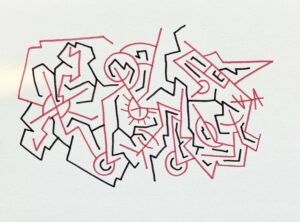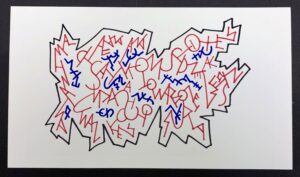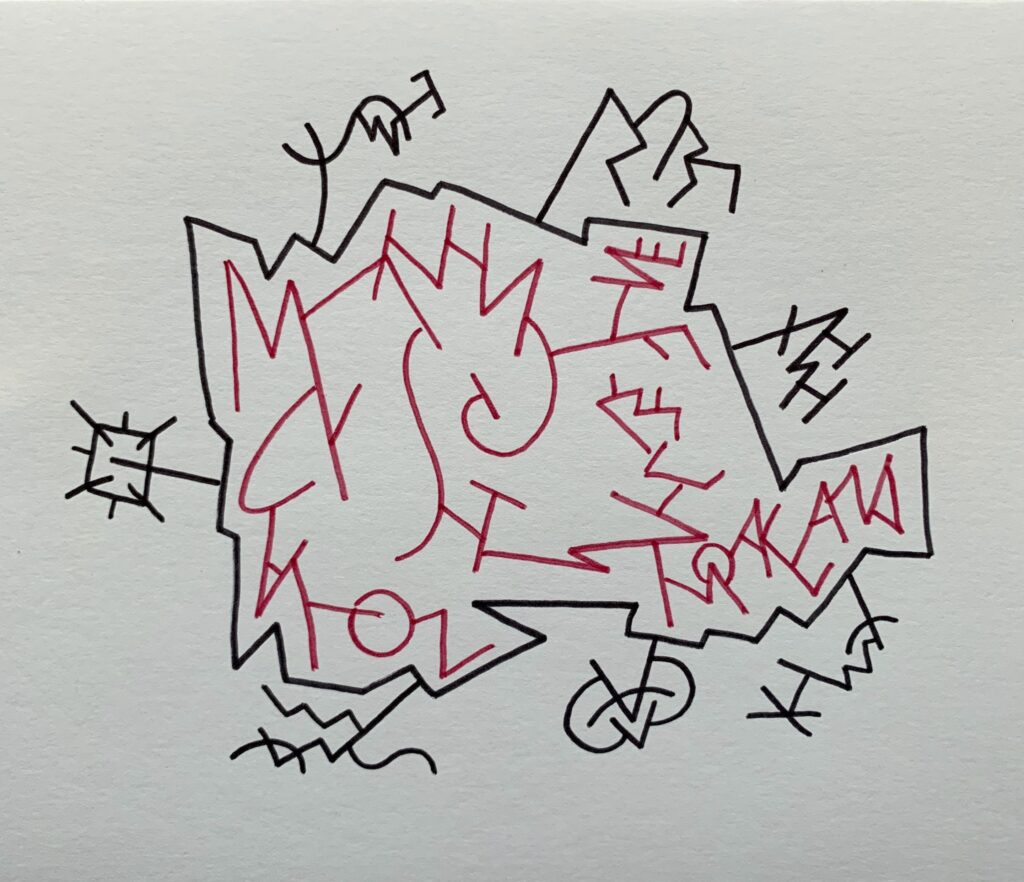There is a mysterious boundary between text scores and graphic notation where language breaks down, and image takes on a deeper purpose. The scores in this exhibition arise from one such compositions: Flightlines (an Opera in Sigils), by poet Derek Fenner, written for the Cornelius Cardew Choir. “Flightlines” written during lockdown and explores issues of non-local performance, and collaborative improvisational interpretation.
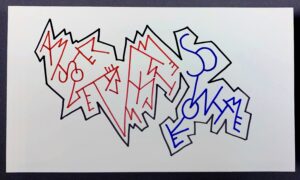
“The rhizome is a map and a tracing. The map is entirely oriented toward experimentation in contact with the real. The map constructs the subconscious. The map is open and connectable in all of its dimensions. It can be drawn on a wall, conceived of as a work of art, constructed as a political action or meditation. Perhaps one of the most important characteristics of the rhizome is that it is always multiple entryways” (Delueze / Guattari). Where are you going? Where are you coming from? What are you heading for? These are totally useless questions. Another way of traveling and moving is proceeding from the middle, through the middle, coming and going rather than starting and finishing. “Look backwards on your future and forward to your past” (Bonnie Prince Billy). “Anyway, Art [making] is a magic which makes the hours melt away and even days dissolve into seconds” (Leonora Carrington). These “sigils are the means of guiding and uniting the partially free belief with an organic desire, its carriage and retention till its purpose served in the sub-conscious self, and its means of reincarnation in the Ego” (Austin Osman Spare). “My works are not simply paintings, they are total worlds; coherent worlds, secret worlds” (Remedios Varo).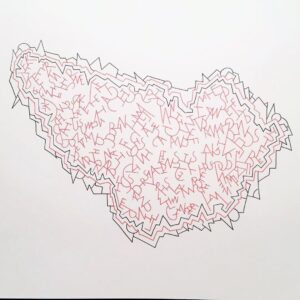
Dr. Derek Fenner is an artist, educator, and researcher working in the Carolinas. He earned his MFA in writing and poetics from the Jack Kerouac School of Disembodied Poetics at Naropa University. After a decade of experience as an art educator and administrator in the Massachusetts juvenile justice system, he completed an MA and Ed.D in educational leadership from Mills College. With over 20 years of experience in K-12 schools, his research interests include youth participatory action research as pedagogy, integrated thinking and learning, juvenile justice education, decolonizing methodologies, and arts-based research. He is the director of art education and the FOCUS Gallery at the University of South Carolina Upstate.
